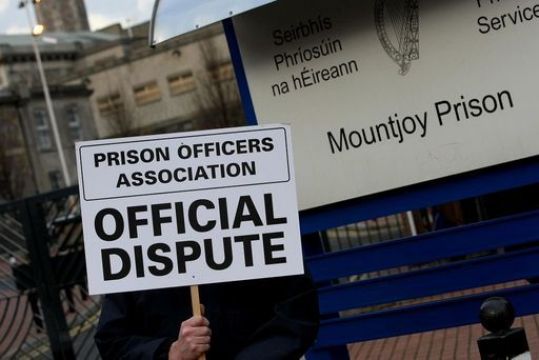Ministers feared maintaining security inside prison would become more difficult if the ability to shorten sentences for murdering gardai was removed, archives suggested.
In 1990, the Justice Department replaced the death penalty for killings deemed to be the most serious with a minimum term of 40 years.
Inmates could expect to serve only 30 of those behind bars if they showed good behaviour and the rest on parole in the community.
The department’s paper said: “Not providing time off for industry and good conduct might remove a possible incentive to good behaviour in the prison.
“From the prison authorities’ point of view, it deprives them of one of the sanctions for misbehaviour, namely forfeiture or reduction of remission.
“The task of maintaining security is consequently made more difficult.”
The Justice Department document was issued as part of the annual release of State files.
Under prison rules the general practice was to grant remission of up to a quarter of sentences.
The winter 1990 proposals meant release through remission earned would not be automatic, it would enable but not require release.
It would remain a matter for the Justice Minister or Government to decide whether a person should be freed.
By 1990 the death penalty was restricted to those convicted of treason, murder of gardai or prison officers in the course of their duties and terrorism.
It was abolished in law later that year.
It had been scrapped in 1964 for most offences, including ordinary murder.
In the intervening period 11 people were sentenced to death, although convictions were quashed or commuted by the President to 40 years in prison.
The official files said life sentences in cases of ordinary murder had been “discredited” due to perpetrators’ early release on parole.
A fixed sentence of 20 years was viewed by the public as more severe.
The document said: “To replace the death penalty as the mandatory sentence for treason and capital murder with a sentence of life imprisonment…would be severely criticised by those opposed to abolition, and more importantly, by the Garda and Prison Officers Associations who have voiced strong objections in the past when abolition was mooted.
“To cater for such objections, something more than the ordinary life sentence would be needed.”
A campaign for early review and release of life sentenced prisoners in Northern Ireland once rehabilitated had prompted calls for a similar approach in the Republic.
The minute said: “The minister (Ray Burke) accepts that his proposals are likely to be criticised as being too severe but he considers that they are justified in view of the seriousness of the offences involved.
“He is satisfied that any lesser alternative penalty or a provision for review would be seen as a failure to provide adequate deterrence against murder of gardai and prison officers.”
The newly published papers are contained in National Archives file reference number 2020/3/16.







